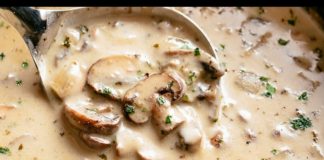
Unfortunately, there is no pill you can take to increase your brain power. It would be wonderful if there was such a supplement, but there is no short-cut to the learning process. Some of us learn a little faster, or maybe a little easier, but our brain power only excels with hard work, and diligence. However, while there may not be a magic ingredient that can make us more intelligent, there are things we can do to improve our over-all brain function. One of them is simple mental exercise, such as reading, doing puzzles, etc… And, there are foods that can make you smarter, in a manner of speaking.
The human brain is one of the most fascinating things on the planet. It controls thousands of operations every second of your life, from before birth, until death, all without your conscious knowledge. And at the same time, it can create things like Beethoven’s Fifth Symphony, or discover how to harness the power of nuclear fission, or even just carry on a conversation with several other brains, all at the same time. Even the most powerful super-computers we can design are light years away from the computing power of even a modest human brain. And true to the laws of physics, you can’t get something for nothing. Your brain only makes up about 2% of your total body weight, but it requires 20% of all the energy you take in just to keep running. Everything you eat or drink effects your brain’s performance. All that you consume is broken down and distributed throughout your body, including your brain. This energy, in the form of nutrients, is transported to the brain by the blood stream, which is powered by the heart, so anything thing that improves circulation, or your heart also will improve your brain function. Likewise, anything that restricts blood-flow to the brain will have an adverse effect on it.
Some of the most beneficial things you can eat for your brain are foods that contain fats and sugars. This may come as a shock to you, since the popular idea is to avoid these. But your brain is the only organ in your body that derives all of it’s sustenance from glucose, and it is your body’s second highest area of deposited fat, after fatty tissues like the ‘love-handles’ and the ‘caboose’. However, there are fats, and there are fats. Your brain needs polyunsaturated fats, also known as Omega-3, and Omega-6 fatty acids. Saturated and trans fats can actually impair brain function. As a rule, we all get plenty of Omega-6 in our normal diet, but most people can benefit from some supplemental Omega-3s. These improve brain function by increasing the conductivity of synapses within the brain, meaning more nerve signals can travel faster. It would be a lot like putting a bigger battery in your flashlight. Brighter, for longer periods of time….. Some foods that will help you increase your Omega-3 levels are pumpkin seeds, flax seeds, coconut, peanuts, almonds, walnuts, avocados, olive oil, and oily fish such as salmon, tuna, herring, and sardines.
Other foods that can make you smarter are those that supply a steady dose of glucose. Your brain can only use so much at a time, and any unused glucose will be stored in fat cells. When you run out of available fat cells, your body will make….you guessed it, more fat cells, in places you’d rather it didn’t, like the previously mentioned anatomical areas. So the trick is to supply the brain with just what it needs for immediate use, and keep supplying it at regular intervals, rather than trying to flood it with more than it can use. It’s better to eat smaller, and more often, than to try to gorge, then go the rest of the day without eating. This can actually increase weight. One reason that most diets don’t work is that when your nutrient intake drops below a certain level, the body goes into panic-starvation mode, and lowers your metabolism, and even shuts down some services it considers non-essential, in order to conserve the remaining nutrients for the brain, and vital functions. The trick to losing weight is to balance calories, with physical activity to make your body use it’s stored glucose, without going into it’s starvation-panic mode, also known to athletes as ‘bonking’, or ‘hitting the wall’. Symptoms of the switch-over include dizziness, nausea and lack of energy or stamina. Glucose supplies the entire body with energy by being converted into ATP (adenosine triphosphate), which is required for all cellular metabolic processes. The brain requires more ATP than all the rest of the body combined. Good sources of sugars that can be easily turned into glucose are starchy vegetables such as potatoes and corn, whole grains, fruit, and raw vegetables. Blueberries are one of the best foods there is for improving brain function, because not only do they supply the needed sugars, but they are also very high in antioxidants, which help protect the cells from the ravages of free-radicals. Processed sugars, such as those found in sweet bakery items and candies, are very hard for your body to process, and can have bad effects on your health. They should be used in moderation, or avoided all together if possible..
More foods that can help brain function are proteins such as eggs, beans, soy and meats. Red meat has gotten an undeservedly bad rap lately, but in reality, it is one of the few complete foods you can eat. The problem with red meat is over-indulgence. 8 oz. per day is plenty. Otherwise, you can stick with poultry, which is much lower in fat, or fish. Pork is a good source of protein, but it has a higher fat content, despite being called “the other white meat”. Leafy green vegetables, green beans and even milk can all help improve brain functions.
There is one herb that deserves mention. Ginkgo bilboa has been used for thousands of years as a supplement to improve brain function. Modern studies suggest that Gingko bilboa might be an effective treatment for some cases of dementia, poor circulation in the legs, and as a memory-enhancement supplement, especially for older adults. It seems to work by dilating the blood vessels in the brain, allowing better circulation, and by softening plaque deposits on the blood vessel walls.
You need to keep in mind that while there are foods that can make you smarter, and increase the flow of knowledge flowing through your brain, you still have to put the knowledge in there. Keeping your brain active is the second part of a mental one-two punch to improve your thinking.






































